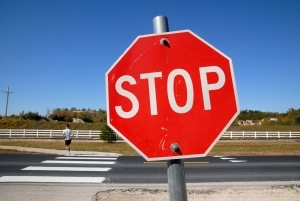February 20, 2019

On February 6, 2019, Mr. David Rebuck, Director of the New Jersey Division of Gaming Enforcement (the “Division” or “NJDGE”), notified Oddsshark.com and its operators that their promotion of illegal gaming sites violated Federal, and New Jersey State gambling marketing laws. In response to the notification, Oddsshark.com has posted an “ACCESS DENIED” message that appears when New Jersey State residents visit the website. Because of its violation of the New Jersey Casino Control Act and federal law, the Division has advised that civil and/or criminal action against OddsShark.com remains a possibility and warned that all New Jersey casinos and Internet gaming sites must cease doing business with them.
How do Internet gaming affiliates avoid the same fate as Oddsshark.com?
Internet Gaming Affiliate Licensing
Before third parties may begin promoting and marketing New Jersey licensed online gaming sites, they must be approved for an affiliate license by the NJDGE. In June 2014, the Division issued guidance concerning how it evaluates and issues affiliate licenses. The Division has split licensing affiliates into two categories, issuing licenses as either vendor registrants or ancillary casino service industry enterprises (“CSIE”), depending on how affiliates are compensated by their third-party online gaming site and land-based casino clients. Affiliates are deemed vendor registrants if they receive a flat fee for directing traffic to websites, and CSIEs if compensation is based on player activity.
New Jersey Gambling Marketing Laws
On June 4, 2015, the NJDGE published an advisory bulletin that outlined the Division’s regulatory concerns with respect to the promotion of illegal Internet gaming and sports betting websites by affiliates. The advisory bulletin makes clear that affiliates (including their owners, officers, and directors, regardless of any change in corporate ownership or structure) will not qualify for licensure (or maintain licensure) in the State if they run advertising for illegal gaming sites. Additionally, the marketing of illegal gaming sites may violate New Jersey State criminal laws, including racketeering and promotion of gambling.
Compliance with Gambling Marketing Laws
The State of New Jersey is becoming a lucrative sports gambling market, one that analysts predict could surpass that of Nevada by 2021. Marketing affiliates that promote New Jersey gaming venues must abide by all gambling marketing laws in order to avoid regulatory penalties. Affiliates should take heed of OddsShark.com’s example – the income they will miss out on, and the potential civil and criminal violations that they now face.
If you are interested in learning more about this topic or ensuring that your advertising practices are compliant with NJDGE regulations, please email us at info@kleinmoynihan.com, or call us at (212) 246-0900.
The material contained herein is provided for informational purposes only and is not legal advice, nor is it a substitute for obtaining legal advice from an attorney. Each situation is unique, and you should not act or rely on any information contained herein without seeking the advice of an experienced attorney.
Attorney Advertising
Related blog posts:
A Match at Match.com may be no Marketing Law Match at all



